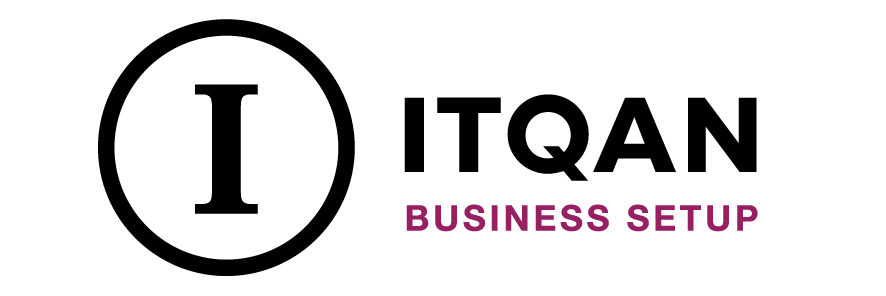
25 May Establishing a company in the Free Zone – Dubai Free Zone
Establishing a company in the Free Zone – Dubai Free Zone is an important strategic step that requires care and good planning to achieve success and make the most of the available opportunities. Dubai is considered one of the most important economic centers in the world, providing an ideal business environment for new companies and small and medium enterprises to grow and expand.
The procedures for establishing companies in the Free Zone in Dubai differ from establishing them in other regions, as they provide companies with the opportunity to benefit from many tax advantages and flexible legislation that facilitate the growth process and stimulate investments.
One of the important aspects that must be taken into consideration when thinking about establishing a company in the Free Zone in Dubai is choosing the appropriate business activity suitable for the target market. The market must also be studied and the financial aspects carefully analyzed to ensure sustainable success and excellence in the market.
In this article, we will take an overview of the process of establishing companies in the Free Zone in Dubai, and we will review the main steps that must be followed to successfully achieve this goal, in addition to the challenges that investors may face and how to overcome them effectively.

Establishing a company in the Free Zone – Dubai Free Zone
Rules for establishing a company in the Free Zone
Establishing a company in the Free Zone in cooperation with Itqan Company requires compliance with several rules and regulations to ensure that the process runs smoothly and effectively. First and foremost, the appropriate type of company must be determined according to business needs and strategic directions, whether it is a sole proprietorship, a joint-stock company, or a limited liability company. Then, a trade name for the company must be chosen that complies with local laws and is unique and distinctive.
In addition, the company’s activity must be accurately determined and ensured that it conforms to the activities permitted in the Free Zone. Not only that, but the investor must provide the necessary capital to establish and operate the company efficiently, in accordance with the requirements of local laws.
By choosing Itqan Company as a strategic partner in establishing your company in the Free Zone, you will receive the necessary support and advice to implement all steps efficiently in accordance with local and international standards. You, as an investor in Dubai, can also communicate and rely on their experience in the field of establishing companies to avoid any potential problems and ensure the success of your business in the local business environment. And international.
Investment laws in the Free Zone
Dubai’s free zones are among the most attractive destinations for foreign investment, as they provide a distinguished investment environment and encouraging laws for companies. These areas contribute to strengthening the local economy and diversifying sources of income, making them the focus of attention of investors from all over the world. Here is a comprehensive look at investment laws in free zones in Dubai:
1. Full foreign ownership
Description: Dubai’s free zone laws allow foreign investors to own companies 100% without the need for a local partner, which enhances investors’ independence and their ability to fully control their businesses.
2. Tax exemptions
Income tax exemption: Companies operating in free zones benefit from complete income tax exemption for periods of up to 50 years, renewable.
VAT Exemption: Most activities in free zones are exempt from VAT, which reduces the overall cost of doing business.
3. Customs Exemption
Description: Goods imported into free zones are exempt from customs duties, which facilitates import and export operations and reduces logistical costs.
4. Freedom to repatriate capital and profits
Description: It allows investors to repatriate capital and profits to their home countries without any restrictions, which provides financial liquidity and helps in better business management.
5. Easy and quick establishment procedures
Description: Authorities in free zones provide simplified and fast procedures for establishing companies, with the ability to submit applications and obtain licenses online. These procedures include submitting the required documents and paying the necessary fees.
6. Advanced Infrastructure
Description: The free zones have an advanced infrastructure that includes modern facilities, advanced logistical services, and global communications networks, which helps companies operate with high efficiency.
7. Flexible labor laws
Description: Free zones provide flexible labor laws, including the ability to easily employ foreign workers and obtain work visas, which helps companies attract the right talent.
8. Governance and regulation
Regulatory authorities: Companies operating in free zones are subject to the supervision of the regulatory authorities specific to each region, which ensure compliance with laws and regulations.
Intellectual property protection: Free zone laws provide strong protection for intellectual property rights, which encourages innovation and creativity.
The most important Free Zone areas in Dubai
Dubai is distinguished by its many free zones, which contribute significantly to attracting foreign investments and enhancing economic activity in the emirate. These areas provide an encouraging business environment with many incentives and facilities for investors. Here is a look at some of the most important Free Zone areas in Dubai:
1. Jebel Ali Free Zone (JAFZA)
Establishment: Established in 1985.
Location: Located near Jebel Ali Port, the largest port in the Middle East.
Targeted sectors: trade, manufacturing, logistics, and distribution.
Advantages: Advanced infrastructure, tax exemptions, 100% foreign ownership.
2. Dubai Internet City (DIC)
Founded: Founded in 1999.
Location: Located in the Al Sufouh area, on Sheikh Zayed Road.
Targeted sectors: technology, communications, startups.
Advantages: An environment supportive of innovation, the presence of major technology companies such as Google and Microsoft.
3. Dubai Media City (DMC)
Establishment: Established in 2001.
Location: Located in the same area as Dubai Internet City.
Targeted sectors: media, broadcasting, publishing, entertainment.
Advantages: An integrated environment for media companies, the presence of major companies such as CNN and BBC.
4. Dubai International Financial Center (DIFC)
Establishment: Established in 2004.
Location: Located in downtown Dubai.
Targeted sectors: financial services, banking, insurance, law.
Advantages: Independent regulatory environment, legal system based on English laws, attraction of global financial institutions.
5. Dubai Healthcare City (DHCC)
Establishment: Established in 2002.
Location: Located in the Zabeel area.
Targeted sectors: health care, medical education, medical research.
Advantages: Comprehensive cluster of medical institutions, hospitals and clinics, advanced medical infrastructure.
6. Dubai South District
Establishment: Established in 2006.
Location: Located near Al Maktoum International Airport.
Targeted sectors: aviation, logistics, light industries, trade.
Advantages: A major hub for Expo 2020, integrated logistics services.
7. Dubai Multi Commodities Center (DMCC)
Establishment: Established in 2002.
Location: Located in the Jumeirah Lakes Towers area.
Targeted sectors: trade in commodities such as gold, diamonds, tea, and coffee.
Advantages: Specialized infrastructure for commodity trading, providing integrated support services for companies.
8. Dubai International Academic City (DIAC)
Founded: Founded in 2007.
Location: Located in Dubailand.
Targeted sectors: higher education, research, training.
Advantages: A gathering of international universities and colleges, an integrated educational environment.
Tax exemptions in the Free Zone
Tax exemptions are one of the most prominent factors that attract companies and investors to free zones in Dubai. These exemptions provide a favorable investment environment that encourages business establishment and expansion. Here is a comprehensive look at the tax exemptions available in Dubai free zones:
1. Tax exemptions on income and profits
Description: Companies operating in free zones enjoy complete exemption from income and profits tax for periods of up to 50 years, with the possibility of renewing this period.
Impact: This exemption helps companies enhance their profitability and invest more money in growing and developing their business without worrying about taxes.
2. Exemptions from Value Added Tax (VAT)
Description: Most companies in free zones are exempt from VAT on goods and services. This exemption allows companies to import and export goods without having to pay VAT.
Impact: This contributes to reducing operational costs for companies and increases the attractiveness of Dubai as a global business center.
3. Customs exemptions
Description: Companies in free zones enjoy complete exemption from customs duties on imported goods, which facilitates import and export operations.
Impact: This reduces shipping and storage costs, and helps companies offer their products at competitive prices in global markets.
4. Freedom to transfer capital and profits
Description: Free zone laws allow the transfer of capital and profits outside the country without any restrictions or taxes.
Impact: This provides financial flexibility to businesses and enhances confidence in Dubai’s investment environment.
5. Do not impose taxes on shares or distributed profits.
Description: Free zones do not impose taxes on shares or profits distributed among shareholders.
Impact: This encourages the attraction of investors and shareholders, as they can achieve higher returns on their investments.
6. Tax exemptions on logistics services
Description: Companies that provide logistical services in free zones enjoy special tax exemptions that include logistics, transportation, and warehousing activities.
Impact: This helps reduce operational costs for logistics companies and enhance their competitiveness.
The most important conditions necessary to establish a company in the Free Zone in Dubai
Establishing a company in the Free Zone in Dubai requires compliance with a number of conditions and requirements. Here are some basic conditions that must be met:
- Type of Company: You must select the appropriate company type for your needs, whether it is a sole proprietorship, a joint stock company, or a limited liability company.
- Trade Name: A trade name for the company must be chosen that complies with local regulations and legislation, and is unique and not similar to the names of other companies.
- Commercial activity: The company’s activity must be determined and ensured that it is permitted within the activities permitted in the Free Zone.
- Capital: Some free zones require a specific capital to establish the company, and this value may vary depending on the type of company and its activity.
- Shareholders and Directors: The national identities of shareholders, directors and legal officers of the company must be determined.
- Contracts and Agreements: Articles of incorporation, partnership and any other relevant agreements must be legally documented.
- Licenses and permits: The necessary licenses and permits must be obtained from the local authorities and relevant authorities.
- Operations Office: An operations office must be provided within the Free Zone to record financial operations and transactions.
- Tax Obligations: You must comply with local and international tax obligations in relation to the company.
- Insurance: Some free zones may require certain company insurances.
These are some basic conditions, and requirements may vary depending on the specific Free Zone and the type of company you wish to establish. It is important to inquire with the relevant government agencies or local consultants to obtain accurate and detailed information about all conditions and requirements.
Steps to establish a company in the Free Zone
The first step in establishing a company in the Free Zone is to determine the type of activity to obtain a business license, where the parties associated with the business are identified, and the activities are divided into commercial, industrial, and professional activity.
Determine the legal form of the company
- The legal form for establishing a company in the Free Zone includes the following types of companies:
- Joint liability companies: This type is limited to commercial and industrial activity only.
- Limited liability companies: constitutes commercial, industrial and professional activities.
- Public contribution: includes practicing commercial, industrial and professional activities.
- Private contribution: includes industrial and commercial activities.
- Civil works: includes civil activities only.
- A branch of a Gulf company: This includes the same activity as the parent company.
- Branch of a foreign company: Branches of foreign companies are allowed to engage in professional activities.
- Branch of a free zone company: practicing commercial, industrial, and professional activities as long as the parent company is licensed in the Emirates.
- Sole proprietorship: It allows an individual enterprise to practice commercial, industrial, and professional activities.
Choose a trade name
The company’s trade name must include a set of rules such as:
- It does not contain inappropriate words.
- It should not contravene public taste.
- To reflect the nature of the company’s activity.
- Obtain initial approval
- Initial approval to carry out the activity must be obtained from the competent authorities.
- Preparing a contract of association and a service agent agreement
- Choosing a workplace
- Obtaining approval from the relevant authorities
- Some activities must obtain approval from more competent authorities.
- After completing all procedures, the required documents can be attached to receive the license, registration, and joining the UAE Chamber of Commerce.
Advantages of establishing a company in the Free Zone
Establishing a company in the Free Zone offers many advantages and benefits that make it an ideal choice for investors. Here are some key features:
- Tax freedom: Companies in the Free Zone benefit from tax freedom, as they are exempt from income taxes and profits taxes for up to 50 years.
- Flexible legislation: Free zones provide a flexible legislative environment that facilitates conducting business and supports economic development.
- There are no restrictions on foreign ownership: Foreigners can own 100% of companies in the Free Zone without the need for a local partner.
- No customs duties: Freezones allow import and export to and from other countries without paying customs duties.
- Access to the regional and global market: Free Zones locations in Dubai provide easy access to the regional and global market, which contributes to expanding the scope of work and increasing business opportunities.
- Advanced infrastructure: Freezones are characterized by advanced infrastructure that supports businesses, making them an ideal place for investment.
- Easy access to workers: Freezones provide easy access to skilled and trained workers of different nationalities, which helps in business development and increased productivity.
- Simplified administrative procedures: Freezones are characterized by simplified and quick administrative procedures, which facilitates the establishment and management of companies efficiently.
In short, establishing a company in the Free Zone is an excellent option for investors who want to take advantage of the flexible economic environment, tax advantages, and flexible legislation to develop their business efficiently and successfully.
Documents required to establish a company in Free Zone Dubai
Establishing a company in Dubai requires submitting a number of essential documents to ensure compliance with local laws and regulations. Here is a list of the most important documents required:
- Establishment application form: The Free Zone establishment application form must be filled out and submitted in conjunction with the necessary documents.
- Copy of passport for shareholders: A copy of the passports of all shareholders of the company must be provided.
- Copy of Personal Identity Cards of Directors: A copy of personal identification cards must be provided to all directors and legal officers of the company.
- Personal photographs: Personal photographs must be submitted for all shareholders and directors.
- Lease Contract: A copy of the lease contract for the office or commercial space that the company will use in the Free Zone must be submitted.
- Bank letter: A bank letter must be submitted proving the deposit of the required capital into the company’s bank account.
- Legal authorization: The company may need legal authorization from shareholders for an individual to sign and act on their behalf in necessary actions.
- Financial report: It may be necessary to submit a financial report proving the company’s financial ability to bear its costs and obligations.
- Company incorporation documents: A copy of the company incorporation documents, such as company contracts and bylaws, must be submitted.
- Shareholder approval: Written approval must be obtained from all shareholders to establish the company and enter into this investment.
This is a general list of required documents, and requirements may vary based on the type of company and the specific Free Zone. It is important to inquire with the relevant government agencies or local consultants to obtain an accurate list of documents required to establish your company in the Free Zone in Dubai.
Types of companies in the Dubai Free Zone
There are several types of companies that can be established in the Dubai Free Zone, and these are some of the common types:
| Type of Company | a description |
|---|---|
| Sole proprietorship | A company managed by one person who is responsible for all financial and legal obligations of the company. |
| A limited liability company | A company consisting of partners who are responsible for the company according to their shares in the capital, and no partner bears responsibility exceeding his share in the company. |
| Shareholding company | A company consisting of a number of shareholders who own shares in the capital, and the limits of their liability are determined according to their shares in the company. |
| Private joint stock company | A special type of joint stock company that allows shareholders to trade their shares in the general financial market, but is subject to special financial market laws and regulations. |
| Subsidiary | A subsidiary of another company is called the parent company. The subsidiary operates under the management and control of the parent company, but maintains an independent legal personality. |
| Partnership company | A partnership between a number of individuals or companies to establish one company, and the partners share profits, losses, and responsibilities in accordance with the partnership agreement. |
| Public joint stock company | A special type of joint stock company that operates in certain sectors and requires compliance with requirements specific to the sectors in which it operates, such as banking, insurance, aviation, and others. |
Please note that these types may differ slightly from one Free Zone to another, and there may be other types of companies available according to the local regulations and laws of each Free Zone. For comprehensive inquiries, you must contact Itqan Company.

Documents required to establish a company in Free Zone Dubai
Costs of establishing a company in the Free Zone in Dubai
Establishing a company in the Free Zone – Dubai Free Zone in cooperation with Itqan Company represents an important strategic step for investors who are looking for a suitable business environment that enjoys many advantages and privileges. These include low tax benefits, no import and export tariffs, flexible trade legislation, and a smooth and streamlined workflow.
Support and consultations can be provided by Itqan Company to investors who wish to establish a company in the Free Zone, as the company provides company establishment services in a way that suits the needs of customers, starting from analyzing the market and choosing the appropriate business activity, all the way to completing the administrative and legal procedures necessary to establish the company.
One of the aspects that must be taken into consideration when establishing a company in the Free Zone in Dubai is determining the appropriate type of company, whether it is an individual company or a limited liability company, based on the investor’s investment needs and objectives. Expected costs must also be carefully considered, including establishment and license fees, rents and other administrative costs.
By choosing Itqan Company as a strategic partner in establishing your company in the Free Zone in Dubai, you can benefit from the experience and efficiency that the company provides in this field, which helps you overcome challenges and achieve success in a business environment characterized by dynamism and continuous development.
At the conclusion of this article, we can conclude that establishing a company in the Free Zone in Dubai represents an excellent opportunity for investors seeking expansion and growth in a dynamic and lively business environment. The Dubai Free Zone offers a range of exceptional advantages such as tax freedom, no need for a local partner, and flexible legislation, facilitating the establishment and operation process.
In addition, the free zones in Dubai provide advanced infrastructure and easy access to the regional and global market, making it an ideal destination for investment. It is important that you carefully study the company incorporation requirements and legal obligations in the chosen free zone before making any decision.
In short, establishing a company in the Free Zone in Dubai represents a great opportunity to benefit from the dynamic economic environment in Dubai and achieve success and distinction in the business world.
Frequently asked questions about establishing a company in the Free Zone
What is the free zone?
A free zone is a special economic zone within a country that is subject to different laws and regulations than the rest of the country, and often provides benefits such as tax breaks and flexible business legislation.
What are the basic steps to establish a company in the Free Zone?
The steps usually include submitting an application to establish a company to the Free Zone Authority, determining the type of company (such as a limited liability company or joint stock company), and determining legal and financial responsibilities.
What are the tax advantages in the Free Zone?
Tax benefits vary by region and country, but usually include tax breaks on profits or value-added taxes, and reductions in taxes on income and capital.
Can foreign companies establish in the Free Zone?
Yes, free zones are often open to foreign companies and international investors, and provide a flexible legislative and economic environment to attract investments.



